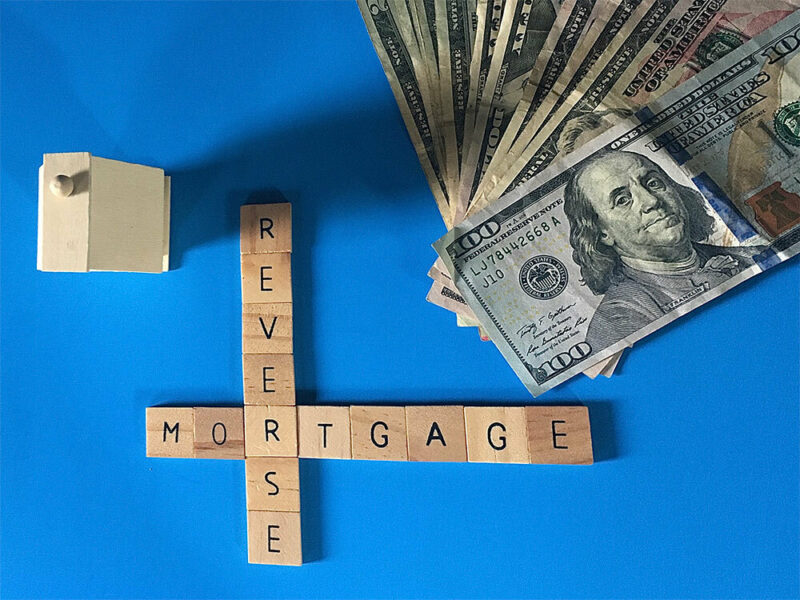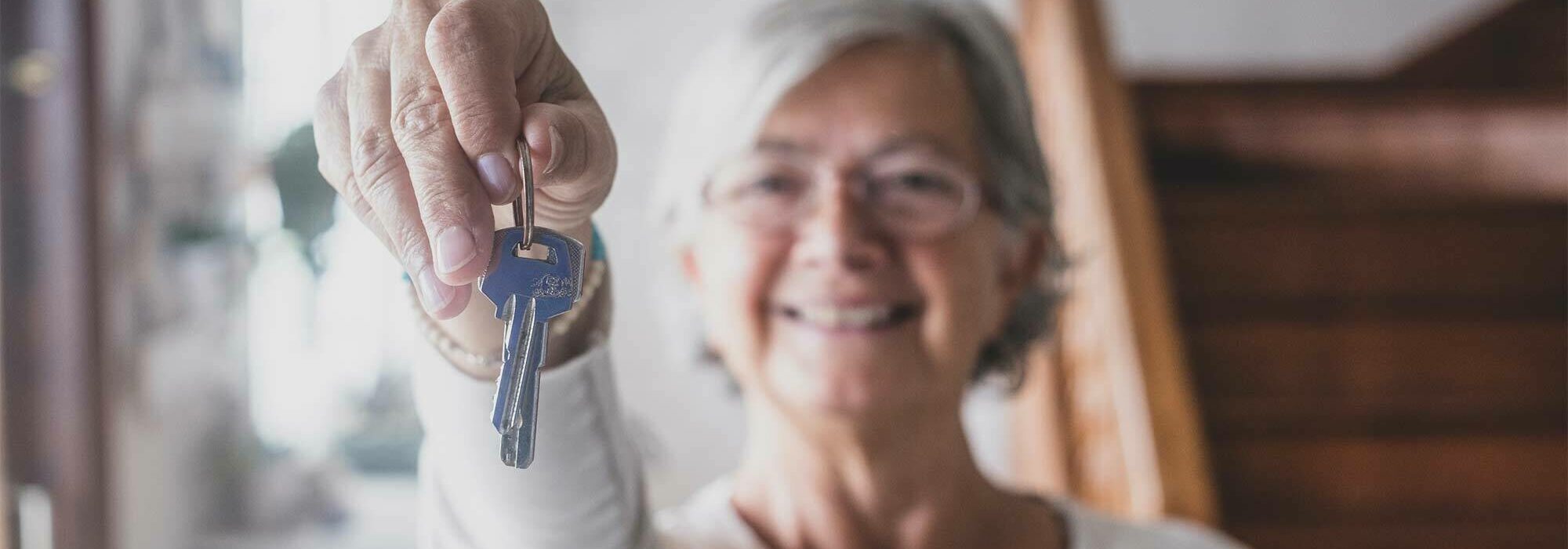Article Excerpt
Seniors can use reverse mortgages to obtain income from the equity in their homes. Learn more about whether a reverse mortgage is right for you.
Reverse mortgages are among the least understood types of mortgage loans available today. A reverse mortgage is a mortgage in which the lender makes regular payments to the borrower.
If this sounds backwards, that’s how it’s supposed to sound. Reverse mortgages are a unique product, but they offer significant benefits to seniors who have substantial equity in their homes. Unfortunately, reverse mortgages can also be subject to various scams. If you’re interested in learning more, you should speak to an experienced reverse mortgage specialist who can help you understand if the time is right for you to go reverse.
» READ MORE: A more in-depth look at reverse mortgage lending at The Wood Group of Fairway

What is a reverse mortgage?
A reverse mortgage is, like other mortgages, a loan secured by real estate. Unlike a purchase-money loan, the borrower already owns the property that will serve as collateral for the loan. Unlike a refinance, they are not using the loan to pay off an existing mortgage. A reverse mortgage provides money to someone who, ideally, owns their house free and clear.
The homeowner can borrow against their equity in the home, or the home’s value if they do not have a mortgage. They have options on how to receive the money from the lender:
A lump sum payment
Fixed monthly payments
A line of credit
Fixed monthly payments are a common choice with reverse mortgages. In that situation, the balance of the loan owed by the homeowner/borrower starts at zero, and goes up with each monthly payment. Hence, it is a “reverse” mortgage.
The borrower does not make monthly payments to the lender, even if they received a lump sum payment. The balance owed comes due when the borrower dies or sells the house. This is where many scams occur. The amount due from the borrower for a federally-insured reverse mortgage cannot exceed the home’s value. If the amount paid by the lender is greater than the value of the house, neither the borrower nor their estate is is liable to pay the difference to the lender. Federally-insured reverse mortgages are also known as Home Equity Conversion Mortgages (HECMs).
Since the payment period of a reverse mortgage is based, at least in part, on life expectancy, reverse mortgages are only available to senior homeowners. The minimum age for eligibility for a reverse mortgage in the U.S. is 62.

Photo by Andrea Piacquadio from Pexels
Property tax, homeowner’s insurance, and other expenses are still the homeowner’s responsibility when they have a reverse mortgage. The purpose of the mortgage is to provide the homeowner with a regular source of income.
When is a reverse mortgage a good idea?
Reverse mortgages have a particular kind of borrower in mind. The ideal reverse mortgage borrower owns their house without a mortgage, but has few liquid assets because most of their net worth is bound up in their home equity.
The term “liquidity” refers to how easy or difficult it is to convert an asset to cash. A highly liquid asset is easily convertible to cash. If you have a check made out to you for $1,000, converting that into cash could be as simple as going to your bank and exchanging it for a stack of bills.
Real estate, on the other hand, is a highly illiquid asset. It’s a “hard” asset. You could own a house valued at $10 million but not have enough money on hand to do anything interesting. Cash, of course, is the most liquid asset there is.
A reverse mortgage provides liquidity to a homeowner without requiring them to sell or refinance their home. To qualify for a reverse mortgage, a homeowner must:
Be at least 62 years old
Have equity in their home of 50% or more
Pay the closing costs
Continue to pay property taxes, homeowner’s insurance premiums, and maintenance expenses
Not need to move out, including to a nursing home or similar facility, for a year or longer

Photo by MART PRODUCTION from Pexels
Repayment of the mortgage, as discussed above, occurs when the borrower sells the house or upon the borrower’s death. A reverse mortgage might be a good idea if you meet the above requirements, and none of the factors discussed below apply to you.
When is a reverse mortgage probably not a good idea?
Even if you are eligible for a reverse mortgage, it might not be a good idea to get one in certain situations, such as:
You want your heirs to get the house.
The most common way to pay back a reverse mortgage is to sell the house. If you want the house to pass to your heirs after you’re gone, you’ll need another way to repay the reverse mortgage.
You plan on moving.
Most reverse mortgages require you to use the home as your primary residence. If you move, the entire loan could come due. Whether you are looking forward to moving to a retirement community in Florida or you anticipate needing to move to an assisted care facility, a reverse mortgage might not be a good idea for you.
You live with someone who’s not on the loan.
No one under the age of 62 can be a signer on a reverse mortgage. Anyone who lives with you and isn’t on the paperwork could find themselves with nowhere to live if you move out or pass away, since the loan would come due.
You can’t keep up with expenses.
Another way a lender can call the entire reverse mortgage due is if you do not keep up with property tax and other expenses. If you struggle with paying bills, and you have doubts about whether the additional income from a reverse mortgage will help, it might not be right for you.
Learn more about reverse mortgages.
The Wood Group of Fairway is here to answer your questions about reverse mortgages, refinances, new home mortgages, and any other mortgage needs. Our specialized reverse mortgage team is ready to help you into a more comfortable retirement, as we truly care about our borrowers and their families.
Get started on your free pre-approval with a few quick questions!



